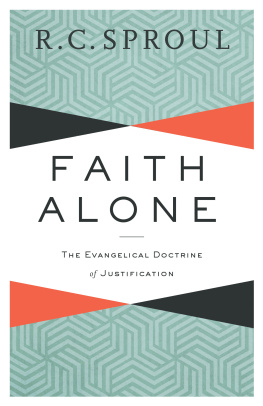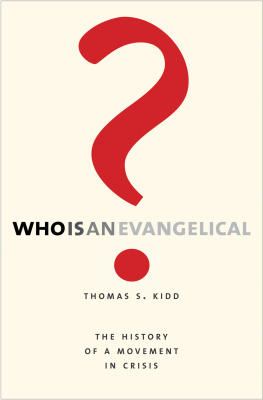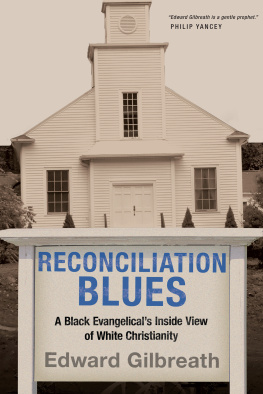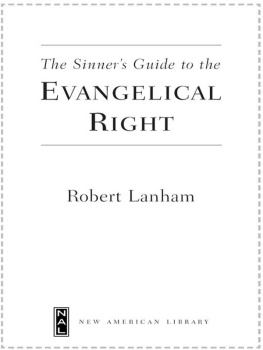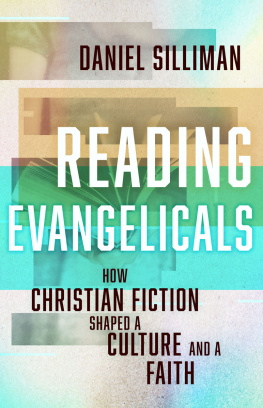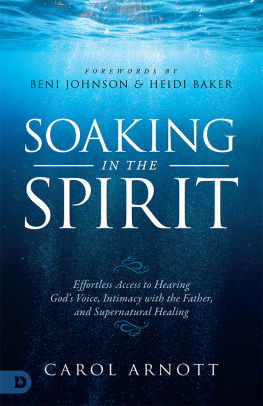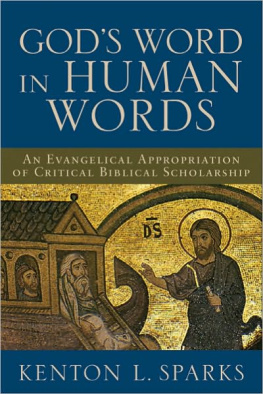Empowered Evangelicals
Bringing Together the Best of the Evangelical and Charismatic Worlds
by Rich Nathan and Ken Wilson
ampelon
PUBLISHING
Boise, ID
EMPOWERED EVANGELICALS revised and updated edition Copyright 1995 and 2009 by Rich Nathan and Ken Wilson. All rights reserved.
All Scripture quotations, unless indicated, are taken from the Holy Bible, New International Version. 1973, 1978, 1984 by International Bible Society. Used by permission of Zondervan Publishing House. All rights reserved.
Verses marked KJV are from the King James Version of the Bible.
Although the stories in this book are true, all names and identifying characteristics have been changed to protect the privacy of those involved.
Published by Ampelon Publishing
P.O. Box 140675 Boise, Idaho 83714
Cover design by Jared Swafford, SwingFromTheRafters.com
Paperback ISBN 978-0-9823286-2-0
Ebook ISBN 978-0-9817705-3-6
TABLE OF CONTENTS
To John Wimber
Remember your leaders, who spoke the Word of God to you. Consider the outcome of their lives and imitate their faith. We remember. We have considered. We are imitating!
The genesis of this book is found in a series of lectures Rich gave for approximately one hundred leaders of various charismatic and Pentecostal groups. During those lectures, he suggested that a synthesis of the best of the evangelical and charismatic worlds offered the best combination of qualities for Christian people as we enter the next millennium.
These lectures focused upon several pairs of items: for example, worship and teaching the Word, using our emotions and using our minds, valuing the supernatural world and valuing the natural world. Rich suggested that Christianity would be much stronger and more biblical if the best emphases of evangelicalism could be combined with the best emphases of Pentecostalism. The lectures, by God's grace, were well received, particularly among the younger leaders.
Before we begin, we must ask the readers' indulgence for our choice of labels. No one within the body of Christ is particularly fond of labels. It would be nice if we could simply refer to all those who claim Jesus as Lord as Christians and stop there. But the fact remains that there are real differences among Christians, and if we are to consider these differences, we are forced to use labels. Thus, let us explain the book's use of the labels evangelical, Pentecostal, and charismatic.
Many Pentecostal denominations such as the Assemblies of God, the Church of God (Cleveland, Tennessee), and the Pentecostal Holiness Church have been involved in the National Association of Evangelical (NAE) since its founding in the early 1940s. Several Pentecostals have served as Presidents of the NAE, including Assembly of God General Superintendent Thomas Zimmerman. Moreover, most Pentecostal denominations have very conservative doctrinal statements regarding the inspiration and authority of the Bible. Thus, most Pentecostals are evangelicals.
Alister McGrath, an English theologian, listed six characteristics of evangelicalism. In his opinion, these include:
1.the supreme authority of Scripture,
2.the majesty of Jesus Christ,
3.the Lordship of the Holy Spirit,
4.the need for personal conversion,
5.the priority of evangelism,
6.the importance of Christian community.
Mainstream Trinitarian Pentecostals clearly fulfill these six criteria.
Nevertheless, in popular usage, evangelicalism generally refers to that portion of evangelicalism that is noncharismatic. In the United States, evangelicalism would be represented by the leadership of Billy Graham and Carl Henry, the magazine Christianity Today, and seminaries such as Trinity Evangelical Divinity School, Gordon Cornwell Theological Seminary, and Fuller Theological Seminary. In England noncharismatic evangelicalism is best represented by the leadership of John Stott and James I. Packer.
To complicate matters further, beginning in the 1960s many distinctively Pentecostal practices such as speaking in tongues and a felt baptism in the Holy Spirit began to be widely experienced by people outside the historic Pentecostal denominations. Some of these practitioners were in nonevangelical, mainline denominations such as the Roman Catholic Church, the Episcopal Church, the United Methodist Church, and the American Lutheran Church. These people began to be known as charismatics or neo-Pentecostals. Many, such as Larry Christenson, Dennis Bennett, and Michael Harper, have attempted to explain their experiences in terms of their denomination's traditions.
Finally, there is a growing number of people who hail from non-charismatic evangelical backgrounds but have adopted certain classical Pentecostal practices such as healing the sick, casting out demons, and receiving prophetic revelations.Many of these people (we are among them) believe that the so-called baptism in the Holy Spirit happens at conversion and is not a second work of grace subsequent to the new birth. They also believe that tongues is simply one of many spiritual gifts and not the only evidence of a particular spiritual experience. Many of these people still see themselves as evangelicals, theologically and culturally, and have sought to relate their experiences of the Holy Spirit's power to evangelical beliefs. What should such people be called?
C. Peter Wagner, one of the leading church growth authorities in the world and professor at Fuller Theological Seminary's School of World Mission, calls such people Third Wave Christians. He does so because in the American experience, the practice of certain spiritual gifts moved from the Pentecostal denominations (first wave), to the charismatic movement (second wave), to evangelical churches (third wave).
We very much appreciate Dr. Wagner's ground breaking work as he attempts to understand and label the characteristics of this latter group of Christians. However, we generally haven't adopted the term Third Wave for three reasons:
1. It takes into account only the experience of Americans in the twentieth century and has limited cross-cultural value.
2. The Holy Spirit's activity is better described as a continually flowing river since the day of Pentecost; three waves or two hundred waves hardly does justice to the Holy Spirit's continuing activity, even if confined to the United States.
3. The term Third Wave has been employed by futurists such as Alvin Toeffler and has a popular meaning completely different from the one intended by C. Peter Wagner.
So what label should be given to Evangelical who regularly heal the sick in the power of the Holy Spirit, cast out demons, have a low-key perspective regarding tongues, and regularly receive prophecies? We have chosen to call such people Empowered Evangelicals. Of course, immediately one might believe we are demeaning the experience of those who don't regularly practice healings or deliverance. Are Billy Graham or John Stott unempowered? Of course not!
Then why did we choose such a potentially misunderstood term? Because we wanted to capture the emphases of the two worlds described in this book. Pentecostals and charismatics have historically emphasized power, thus the word empowered. Evangelicals have historically been concerned with the evangel-the good news of salvation that God has made known in Jesus Christ. Combining the concerns of Pentecostals and charismatics with the overriding concern of evangelicals, we have chosen the term Empowered Evangelicals.
Our prayer is that our book might be received in the irenic spirit in which it was intended, despite our occasional critiques of what we see as possible weaknesses in the two worlds described. We intend to build a bridge, so that travelers from either world might grow to appreciate and love the strengths of the other world. If more churches choose, as a result of reading this book, to focus on preaching the evangel and couple that preaching with the practices of healing, prophecy, and intimate worship, we will feel that God has answered our prayer.
Next page

